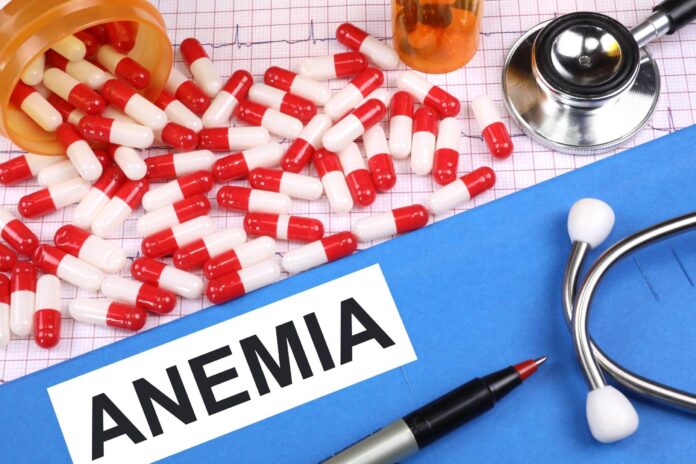
Understanding Anemia: Causes and Symptoms of Low Red Blood Cells
Anemia is a medical condition characterized by a decrease in the number of red blood cells or a decrease in the amount of hemoglobin in the blood. Red blood cells are responsible for carrying oxygen from the lungs to the rest of the body. When the body lacks red blood cells, it is not able to get enough oxygen, leading to symptoms such as fatigue, weakness, and shortness of breath. It is essential to understand the causes and symptoms of anemia to receive the necessary treatment and improve quality of life.
Causes of Anemia
Anemia can be caused by a variety of factors, including:
Iron Deficiency: This is one of the most common causes of anemia. Iron is a vital component of hemoglobin, the protein in red blood cells that carries oxygen. When the body does not have enough iron, it cannot produce enough hemoglobin, leading to anemia.
Vitamin Deficiency: Deficiency in vitamins such as B12, folate, and vitamin C can lead to anemia. These vitamins are essential for the production of red blood cells, and their deficiency can disrupt the process, leading to anemia.
Chronic Diseases: Chronic diseases such as kidney disease, cancer, and inflammatory conditions can also lead to anemia. These conditions can affect the body’s ability to produce red blood cells or lead to the destruction of red blood cells, resulting in anemia.
Genetic Disorders: Certain genetic disorders, such as sickle cell anemia and thalassemia, can also cause anemia. These conditions affect the structure and function of red blood cells, leading to a decreased ability to carry oxygen.
Bone Marrow Problems: Diseases such as leukemia and myelodysplastic syndrome can affect the production of red blood cells in the bone marrow, leading to anemia.
Blood Loss: A sudden loss of a significant amount of blood, such as during a trauma or surgery, can also lead to anemia. Chronic blood loss, such as heavy menstrual periods or gastrointestinal bleeding, can also cause anemia over time.
Medications: Certain medications, such as chemotherapy drugs, can affect the production of red blood cells, leading to anemia.
Symptoms of Anemia
The symptoms of anemia can vary depending on the severity of the condition, but common symptoms include:
Fatigue: Feeling tired and low on energy is one of the most common symptoms of anemia. This is due to the body not getting enough oxygen to function properly.
Weakness: Anemia can cause a feeling of weakness and inability to perform normal activities. This is due to the lack of oxygen reaching the muscles and tissues.
Shortness of Breath: Anemia can lead to difficulty breathing, especially during physical activity, as the body struggles to get enough oxygen.
Dizziness: Anemia can cause dizziness and lightheadedness, especially when standing up or exerting oneself.
Pale Skin: A lack of red blood cells can cause the skin to appear pale or have a yellowish pallor.
Irregular Heartbeat: Anemia can cause the heart to beat irregularly, leading to palpitations or a rapid heartbeat.
Cold Hands and Feet: Anemia can affect circulation, leading to cold hands and feet.
Headaches: Anemia can cause headaches, especially when the brain is not getting enough oxygen.
Tongue and Nail Changes: Anemia can cause changes in the appearance of the tongue and nails, such as a smooth and shiny tongue or brittle and spoon-shaped nails.
If you experience any of these symptoms, it is essential to consult a healthcare professional for proper diagnosis and treatment. Anemia can be diagnosed through a blood test to measure the levels of hemoglobin and red blood cells in the blood. Once diagnosed, the underlying cause of anemia must be identified to receive appropriate treatment.
Treatment for Anemia
The treatment for anemia depends on the underlying cause and severity of the condition. Common treatments for anemia include:
Iron Supplements: If the anemia is due to iron deficiency, iron supplements may be prescribed to increase the body’s iron levels and improve red blood cell production.
Vitamin Supplements: In cases of anemia caused by vitamin deficiencies, vitamin supplements such as B12, folate, or vitamin C may be recommended.
Dietary Changes: Eating a diet rich in iron and vitamins can help improve anemia. Foods such as red meat, poultry, fish, leafy greens, and fortified cereals can provide the necessary nutrients for red blood cell production.
Medications: In cases of chronic diseases or bone marrow problems, medications may be prescribed to address the underlying condition and improve red blood cell production.
Blood Transfusion: In severe cases of anemia, a blood transfusion may be necessary to quickly increase the number of red blood cells in the body.
Lifestyle Changes: Making lifestyle changes such as reducing alcohol consumption, quitting smoking, and managing chronic diseases can help improve anemia.
In some cases, treating the underlying cause of anemia may be necessary to effectively improve the condition. It is essential to work with a healthcare professional to receive the appropriate treatment and manage anemia.
Conclusion
Anemia is a common medical condition that can have significant impacts on overall health and well-being. Understanding the causes and symptoms of anemia is essential for receiving proper diagnosis and treatment. By addressing the underlying causes of anemia and managing the symptoms, individuals can improve their quality of life and reduce the impact of the condition on their daily activities. If you experience symptoms of anemia, it is crucial to consult with a healthcare professional to receive the necessary care and support. With proper treatment and management, individuals with anemia can lead a healthy and active lifestyle.

















